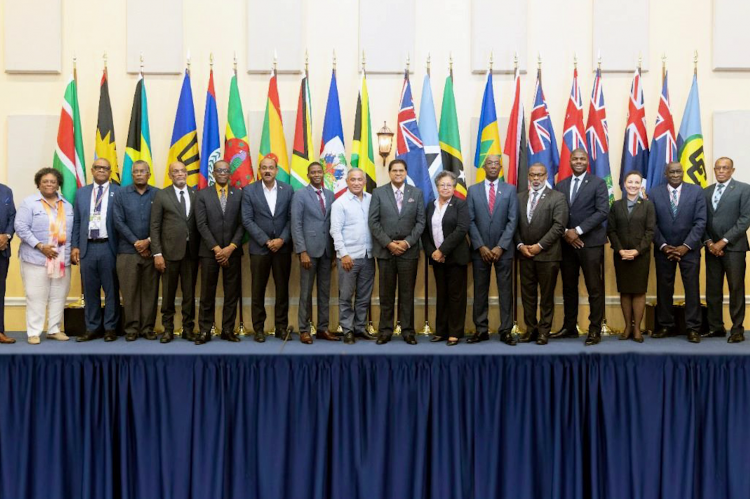📰 Belize: A Regional Member When Convenient—A History of Empty Promises and Unkept Pledges
By: Omar Silva I Editor/Publisher
National Perspective Belize I Digital 2025
Belize City Saturday 12th July 2025
For nearly half a century, Belize has been eager to sign declarations and take its seat at regional tables—be it the Caribbean Community (CARICOM) or the Central American Integration System (SICA). From trade and security to the free movement of people, successive governments have proudly showcased treaties and accords as evidence of Belize’s commitment to regional solidarity. But a closer look reveals a consistent, troubling reality: Belize has been a willing recipient of the benefits of membership, while persistently failing to fulfill its obligations.
CARICOM: Two Decades of Rhetoric Over Reality
In 2001, Belize signed the Revised Treaty of Chaguaramas, committing to the creation of the Caribbean Single Market and Economy (CSME). This treaty was clear in its objectives: unrestricted movement of goods, services, capital, and—most importantly—people across CARICOM states. Article 45 of the Treaty states plainly:
“Member States shall establish measures for the free movement of Community nationals within the Community.”
Yet for more than twenty years, Belize has maintained some of the region’s most restrictive immigration practices. Haitians and Jamaicans have repeatedly been singled out for scrutiny, visa refusals, and deportation. Officials claimed, often without proof, that these citizens would use Belize as a transit route to the United States—a justification that contradicts the very purpose of CARICOM citizenship.
Even in July 2025, when Belize announced alongside three other states that it would finally implement full free movement by October 1, Prime Minister John Briceño quickly qualified the promise:
“We signed on to it, but we asked for a three-year period as we work out the kinks…”
This is not a new pattern—it is the continuation of a strategy to delay and defer until commitments fade from public memory.
SICA: Another Record of Broken Promises
Belize joined SICA in 1998, embracing a framework that explicitly encourages freer movement of Central American citizens. The 2012 Placencia Declaration, signed at an extraordinary SICA summit Belize itself hosted under the UDP Dean Barrow administration, is a striking example.
Gathering in Placencia and San Pedro in December 2012, heads of state agreed to a 14-point accord covering everything from security cooperation to climate resilience. Among the promises was the commitment to:
✅ Work toward mutual recognition of driver’s licenses across all SICA countries,
✅ Harmonize migration procedures to make regional mobility a reality,
✅ Reduce barriers to movement for citizens traveling, working, or doing business within the region.
At the time, Belizean officials hailed the Placencia Declaration as a milestone. But over 12 years later, there has been no implementation. Central American citizens still face some of the region’s highest visa fees—up to USD $200 for a 30-day stay—and are often subjected to arbitrary rejections and punitive fines. While Belizean politicians posed for photographs and issued optimistic statements, nothing changed at the border.
Follow the Money, Not the Principles
This opportunistic approach stands in sharp contrast to Belize’s eager acceptance of financial benefits from both regional blocs.
From CARICOM’s Caribbean Development Bank (CDB), Belize has received hundreds of millions of dollars in loans and grants—financing roads, water systems, hurricane recovery, and education.
From SICA’s CABEI (Central American Bank for Economic Integration), Belize has accessed concessional funding for health infrastructure, energy projects, and COVID-19 relief.
Even as these institutions supported Belize through repeated crises, the governments of the day—both PUP and UDP—made little effort to match those benefits with equal commitment to regional obligations.
A Tradition of Convenience
It is not only the current administration that should be held accountable. This is a bipartisan legacy. Whether blue or red, Belize’s governments have treated regional membership as a menu of perks—selecting development financing and trade access while leaving the hard work of integration on the table.
Today, as Belize once again pledges to honour its commitments to CARICOM free movement, it is worth remembering the long line of similar promises: the Revised Treaty of Chaguaramas in 2001, the Placencia Declaration in 2012, and countless declarations in between. All were hailed as breakthroughs. All were quietly abandoned.
If Belize is to be taken seriously as a regional partner, it will need more than ceremonial signatures and hopeful statements. It will need the courage—and the integrity—to do what it has refused to do for decades: match words with action.
- Log in to post comments

